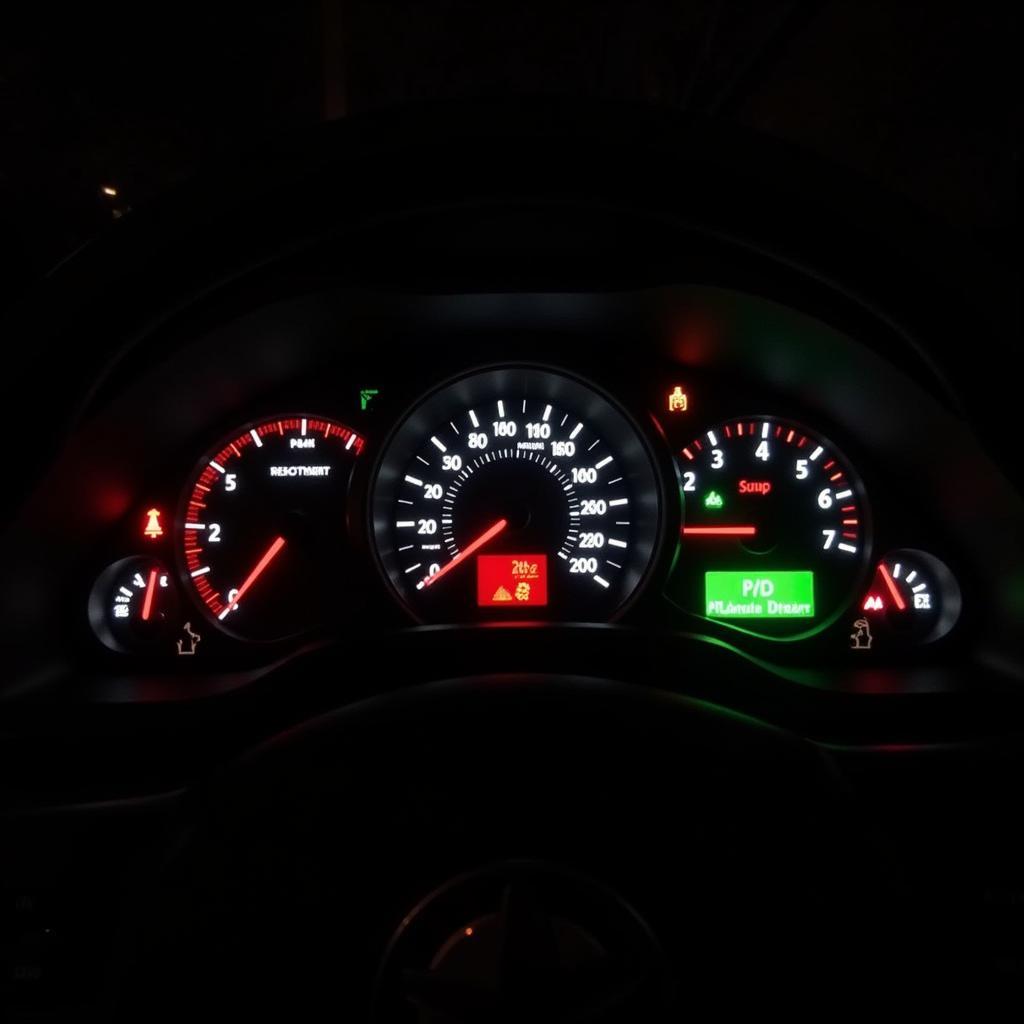The age-old debate: German cars vs. Japanese cars. While German engineering is often lauded for its performance and luxury, the question “Why Do German Cars Have More Problems Than Japanese Cars?” frequently pops up in online forums and discussions. Let’s dive into this complex topic and explore the factors contributing to this perception.
Decoding the Reliability Gap: German vs. Japanese Cars
Several factors contribute to the perceived reliability difference between German and Japanese cars. It’s not simply a matter of one being inherently “better” than the other. Rather, a confluence of design philosophies, maintenance approaches, and technological complexities play a role.
Complexity vs. Simplicity: A Tale of Two Philosophies
German cars are often packed with cutting-edge technology, sophisticated electronics, and high-performance engines. While these features enhance the driving experience, they also introduce more potential points of failure. Think of it like a high-end computer versus a basic calculator. The computer is capable of much more, but it’s also more susceptible to glitches. Japanese cars, on the other hand, often prioritize simplicity and reliability. They tend to use proven technology and robust designs, leading to fewer potential problems. This doesn’t mean they lack innovation, but their approach is generally more conservative.
 German vs. Japanese Car Engine Bay Comparison
German vs. Japanese Car Engine Bay Comparison
Maintenance Matters: The Cost of Cutting-Edge
German cars often require specialized tools, parts, and expertise for maintenance and repair. This translates to higher repair costs compared to Japanese cars, which are often easier and less expensive to service. Think of it as maintaining a racehorse versus a workhorse. Both require care, but the racehorse demands a higher level of specialized attention.
The Perception of Luxury: High Expectations, High Scrutiny
German cars are often associated with luxury and prestige, leading to higher expectations from owners. A minor rattle or squeak might be overlooked in a more budget-friendly car, but it becomes a major concern in a luxury vehicle. This heightened scrutiny can contribute to the perception of German cars having more problems.
 German Car Dashboard Warning Lights
German Car Dashboard Warning Lights
Driving Style and Maintenance Habits: A Critical Factor
How a car is driven and maintained significantly impacts its reliability. Aggressive driving and neglecting routine maintenance can lead to problems in any car, but the impact can be more pronounced in high-performance German vehicles. Just like a finely tuned instrument, a German car needs proper care to perform at its best.
Why are German cars so expensive to maintain?
The higher maintenance costs associated with German cars often stem from specialized parts, complex systems, and the need for specialized labor. German manufacturers often prioritize performance and advanced technology, which can lead to more intricate and expensive components.
“German cars are like finely tuned instruments. They offer incredible performance, but that performance comes at a price, both upfront and in ongoing maintenance.” – Hans Schmidt, Automotive Engineer
Are Japanese cars really that much more reliable?
While Japanese cars have a reputation for reliability, it’s essential to remember that this is a generalization. Individual models and even specific years can vary. However, the focus on simplicity and robust engineering often translates to fewer problems and lower maintenance costs over the long run.
Is the Reliability Gap Closing?
The gap in perceived reliability between German and Japanese cars may be narrowing. As Japanese manufacturers incorporate more advanced technology, and German manufacturers focus on improving reliability, the differences are becoming less pronounced. Ultimately, choosing the right car depends on individual needs, priorities, and driving preferences.
Conclusion
The question of “why do German cars have more problems than Japanese cars?” is nuanced and multifaceted. While German cars can be more complex and expensive to maintain, they also offer a unique driving experience. Japanese cars often prioritize reliability and affordability. The best choice depends on individual preferences and priorities. Need help navigating the complexities of car ownership? Contact AutoTipPro at +1 (641) 206-8880 or visit our office at 500 N St Mary’s St, San Antonio, TX 78205, United States. We’re here to help you make the best decision for your automotive needs.
FAQ
- Are all German cars unreliable? No, not all German cars are unreliable. Reliability varies by model, year, and maintenance history.
- Are Japanese cars always cheaper to maintain? Generally, yes, but this also depends on the specific model and the type of maintenance required.
- Which is better, a German car or a Japanese car? The “better” car depends on individual needs and preferences. Consider your budget, driving style, and desired features.
- Do German cars hold their value better than Japanese cars? Depreciation varies greatly depending on the specific make and model.
- What are some of the most reliable Japanese car brands? Toyota, Honda, and Mazda are often cited as some of the most reliable Japanese brands.
- What are some common problems with German cars? Some common issues include electrical problems, oil leaks, and issues with complex electronic systems.
- How can I improve the reliability of my German car? Following the recommended maintenance schedule and addressing issues promptly can significantly improve reliability.






Leave a Reply